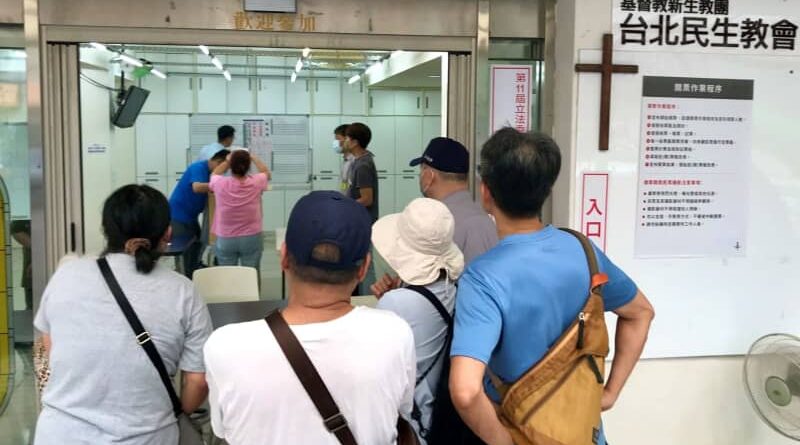Taiwan recall drive fails to unseat 24 opposition lawmakers
Taiwan’s unprecedented mass recall targeting 24 opposition lawmakers from a China-friendly party suffered a setback on Saturday, as all managed to retain their seats.
The outcome suggests that, with the opposition still controlling the legislature, challenges to President Lai Ching-te’s independence-leaning Democratic Progressive Party (DPP) government are likely to continue.
Eric Chu, who chairs the China-friendly Chinese Nationalist Party, or Kuomintang (KMT), said Saturday’s results were “not about winning or losing for any political party, but a victory for the people of Taiwan.”
“The results prove that Taiwan’s democracy is mature, and we thank the people for their choice,” Chu told a news conference late Saturday.
DPP lawmakers vowed to keep urging opposition legislators to fulfil their constitutional duties and put Taiwan’s interests first.
“Don’t misread these results,” said DPP legislative caucus chief Rosalia Wu. “This recall shows the strong resolve of many Taiwanese to resist communism, defend Taiwan, and uphold constitutional democracy,” she added.
DPP legislator Chen Pei-yu told Era News that the recall campaign, though driven by civic groups, faced an uphill battle in long-time KMT strongholds. She urged the public to stay engaged, with a second round of recall votes set for August.
Recall organizers say the mass movement will help reinforce democracy, noting that the high share of “yes” votes in some districts revealed strong public distrust of incumbent lawmakers.
“This recall is definitely a legitimate and grass-roots movement,” said Taipei campaigner Amei, according to the Central News Agency.
Taiwanese tycoon Robert Tsao, a key recall campaigner, said the results were disappointing and blamed the the Chinese Communist Party’s deep infiltration into Taiwan and divisive tactics, which he said far exceeded public expectations.
This recall effort occurs amid a deepening political deadlock. Although Lai won the presidency in early 2024, the DPP holds only 51 of 113 legislative seats. The KMT controls 52 seats, the Taiwan People’s Party (TPP) eight, and two independents aligned with the KMT bring the opposition’s majority to 62 seats.
Taiwan’s opposition-controlled legislature has caused gridlock amid rising pressure from China.
The opposition majority has bypassed procedures to alter legislative powers and cut billions from the 2025 budget — including from defence, culture and key agencies — drawing criticism for potentially favouring China and weakening Taiwan’s government.
Taiwan, a self-ruled democracy of 23.4 million people, has maintained an independent government since KMT members fled to the island in 1949 after losing a civil war to the CCP. However, China views the democratic island as part of its territory and has repeatedly threatened to annex it by force if necessary.
China labels the DPP as a separatist force and refuses to hold talks with its leadership. Currently, the KMT maintains informal ties with the CCP, often promoting closer cross-Strait exchanges.
